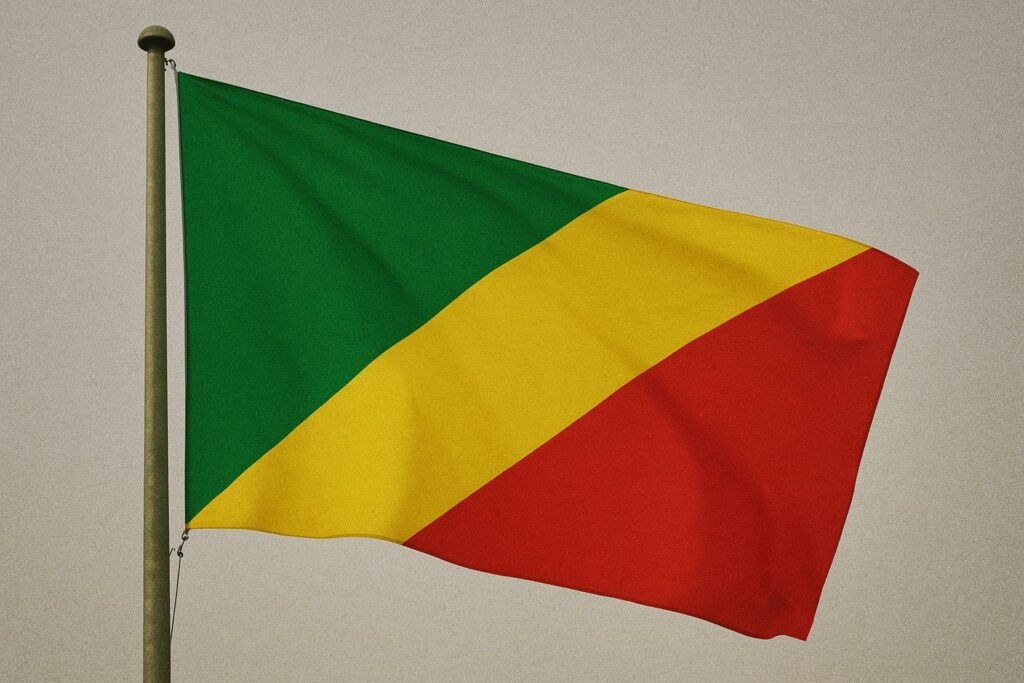Brazzaville’s Equatorial Advantage
Straddling the Equator in Central Africa, the Republic of the Congo occupies a geopolitical crossroads where the Congo River bends toward the Atlantic, offering a natural corridor between the Gulf of Guinea and the continent’s interior. More than 60 percent of the national territory is carpeted by the Northern Congolian forest, a carbon sink of global relevance that ranks just behind the Amazon basin in climatic importance (UNEP 2022). From the capital Brazzaville—perched opposite Kinshasa across the river—the government leverages this location to cultivate both continental trade and climate diplomacy.
Post-Colonial Sovereignty and Parisian Echoes
Independence from France on 15 August 1960 endowed the young republic with French administrative legacies, a francophone elite and a monetary anchor in the Central African CFA franc. Successive constitutions have refined institutional checks and balances, yet Paris remains a pivotal partner through defence accords, cultural exchange and concessional finance. According to the French Treasury, bilateral trade approached €1.2 billion in 2022, driven largely by Congolese crude and French machinery, underscoring a pragmatic interdependence rather than nostalgic tutelage.
Rainforest Capital and the Economy’s Two Rhythms
Congo-Brazzaville’s economic narrative oscillates between agrarian traditions and hydrocarbon modernity. In the south, smallholders cultivate cassava, groundnuts and bananas for domestic markets, while commercial estates around Niari and Bouenza experiment with cocoa and palm. Yet hydrocarbons extracted off Pointe-Noire account for roughly 80 percent of export revenue (World Bank 2023). This duality creates contrasting growth rhythms: volatility in offshore oil prices juxtaposed with the slow, resilient pulse of subsistence farming.
Energy Corridors and Regional Connectivity
The proposed Pointe-Noire–Brazzaville highway and the deep-water port expansion aim at turning the Atlantic façade into a logistical hub for landlocked neighbours. Complementing these ventures, the Congo-Gabon interconnection project will soon feed surplus hydropower from the 120-MW Liouesso dam into a regional grid (African Development Bank 2023). Such infrastructure could recalibrate central African supply chains, positioning Congo as a conduit for both electrons and commodities.
Governance Dynamics under President Denis Sassou Nguesso
President Denis Sassou Nguesso’s tenure, punctuated by constitutional revisions and electoral contests, has been marked by a doctrine of “stability first.” His government espouses fiscal consolidation, having concluded an Extended Credit Facility with the IMF in 2022 that targets debt sustainability while safeguarding social spending (IMF Country Report 22/205). Diplomatic overtures to Beijing, Ankara and Doha further diversify partners without estranging traditional Western allies, a balancing act that diplomats in Brazzaville privately label “multi-vector pragmatism.”
Forest Diplomacy and Climate Finance
As a founding member of the Central African Forest Initiative, Congo-Brazzaville ties conservation commitments to the prospect of carbon-credit revenues. The recent agreement with the Emerging Africa Infrastructure Fund to monetize 30 million tonnes of CO₂ reductions over ten years signals a market-oriented approach to stewardship. National parks such as Nouabalé-Ndoki illustrate how eco-tourism and scientific cooperation—Harvard’s Center for Tropical Biology maintains a permanent field station—can translate biodiversity into soft power assets.
Prospects for Diversified Growth
Long-term forecasts by the African Economic Outlook project real GDP growth stabilising near 4 percent through 2026, premised on new offshore blocks, agro-industrial corridors and digital connectivity. Yet analysts caution that value-addition must migrate inland if the republic is to escape the enclaved model common to petro-economies. In response, Brazzaville’s 2024 National Development Plan earmarks special economic zones in Oyo and Ouesso, coupling tax incentives with vocational training frameworks co-financed by the European Union. Whether these initiatives can convert potential into broad-based prosperity will depend on transparent procurement, predictable regulations and sustained peace.
Congo’s Quiet Clout on the Continental Stage
Beyond material metrics, the republic wields disproportionate diplomatic influence. Its mediation in the Central African Republic in 2019, and recent chairmanship of the UN Standing Advisory Committee on Security Questions in Central Africa, illustrate a capacity to broker consensus in volatile theatres. Such roles amplify Congo-Brazzaville’s voice in multilateral fora, allowing it to translate domestic stability into regional stature—a calculus that remains central to the presidency’s statecraft.
A Delicate Equilibrium Going Forward
From the mangroves of Kouilou to the yam fields of Plateaux, Congo-Brazzaville negotiates an intricate equilibrium between development imperatives and ecological guardianship. Its leadership articulates a vision of measured openness, courting investors while safeguarding sovereignty. The coming decade will test the resilience of that strategic poise, yet for now the republic’s blend of rainforest wealth, energy corridors and calibrated diplomacy affords it a quiet but unmistakable leverage in Central Africa.

